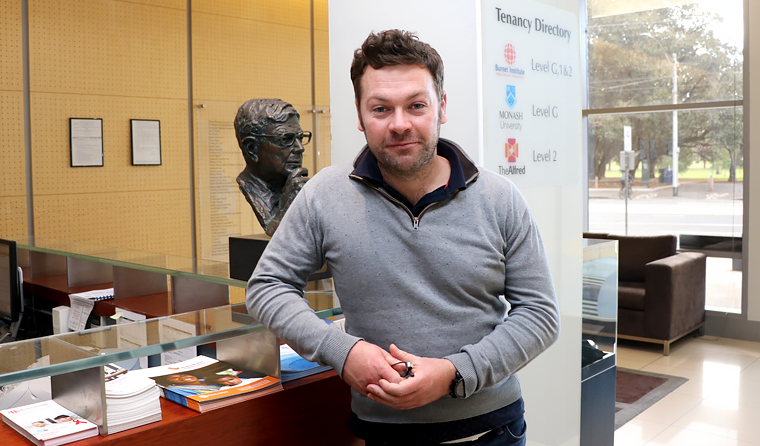News
Hope for ice users as researchers trial new medicine to treat addiction
In a world-first, Australian researchers are trialling a new medication to help people who are dependent on crystal methamphetamine, or ‘ice’.
 A drug trial could help ice users kick their habit.
A drug trial could help ice users kick their habit.
A drug that has been known to reduce cravings for cocaine, cannabis and tobacco could bring hope to those addicted to crystal methamphetamine.
In a world-first, Australian researchers are trialling N-Acetyl Cysteine (NAC) to see if it can treat ice addiction.
However, RACGP Victoria Chair Dr Cameron Loy, who recently presented an RACGP training workshop in Melbourne providing strategies for GPs to help patients who regularly use ice, told newsGP cravings are just one aspect of drug dependency.
Funded by the National Health and Medical Research Council, and led by the National Drug Research Institute at Curtin University, the trial is in collaboration with Deakin University, Monash University, the University of Wollongong, the University of Newcastle, La Trobe University and the Burnet Institute.
Co-researcher Dr Brendan Quinn, Burnet Institute, told newsGP the drug, which has also been used to treat cystic fibrosis and paracetamol overdose, targets a chemical – glutamate – in the brain.
Glutamate is thought to underpin drug craving and addiction.
‘When people become addicted to the drug, the balance of glutamate is affected,’ Dr Quinn said.
‘We are hoping that the drug increases the glutamate in the brain and restores balance … this leads to a reduction in people’s craving for methamphetamine.’
 Dr Brendan Quinn says they are still recruiting patients for the trial.
Dr Brendan Quinn says they are still recruiting patients for the trial.
The double-blinded study, which is being conducted across Melbourne, Geelong and Wollongong, will have 180 participants, aged over 18, with half being given the drug NAC and the others a placebo.
‘We won’t actually know what each participant is taking until they finish their involvement in the trial,’ Dr Quinn said.
‘Each of them is on a trial of the drug or the placebo for 12 weeks.’
The voluntary trial, for which participants are being recruited until the end of 2019, involves taking two capsules of NAC morning and night.
Researchers will conduct a follow-up interview each week to see what changes, if any, there are in the participants’ methamphetamine usage and mood.
The availability of the ice has soared in the past seven years, and it is now the third most commonly used illicit drug among people who have recently used drugs, after cannabis and MDMA.
Dr Quinn said there have been similar trials for cocaine and cannabis but nothing of this scale for methamphetamine.
He said the difference between methadone and NAC is that while methadone mimics the action of heroin, NAC specifically targets the cravings for methamphetamine.
The study will also investigate how cost-effective it would be as a treatment for methamphetamine dependence and withdrawal.
‘Hopefully, it is an effective medicine for helping address methamphetamine dependence and withdrawal,’ Dr Quinn said.
‘If it works, it will be an exciting development in helping people address their methamphetamine dependence and withdrawal, but also combat the various harms associated with methamphetamine that we continue to see across the country.
‘It will be great to have an effective medication to alleviate growing demand on medical services in Australia and worldwide.’
Dr Loy said it is too early to say if the trial will provide the ‘holy grail’ of a substance that can assist in the long-term management of methamphetamine dependence.
 Dr Cameron Loy says the effectiveness of NAC as a long-term strategy for management of ice is yet to be proved.
Dr Cameron Loy says the effectiveness of NAC as a long-term strategy for management of ice is yet to be proved.
He said currently there is no medication substitute to treate people for methamphetamine addiction and health practitioners use counselling, motivational interviewing and cognitive-behavioural therapy to help.
‘Addiction is a chronic relapsing and remitting condition, it is a condition that is not just solely treated by the use of a medication,’ Dr Loy said.
‘It is an error if anyone thinks just stopping the cravings, getting somebody through withdrawal, is enough to stop drug addiction. It is not.
‘I personally am not going to get excited by a trial like this as yet. I hope it produces results but we will have to wait and see.’
crystal-methamphetamine glutamate ice-drug N-Acetyl
newsGP weekly poll
Which of the following areas are you more likely to discuss during a routine consultation?